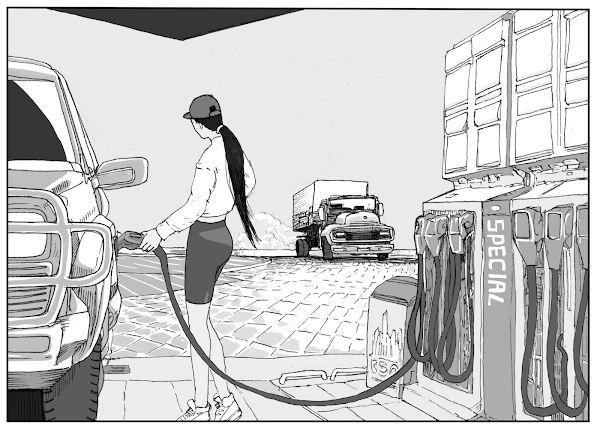As a designer I know that a design and elements in that design needs to serve a purpose to communicate most effectively. I believe in the minimalistic idea of design where the least will speak the most. I believe, if not only in minimalism, in functionality in design.
But as much as these I also greatly believe in childlike decorative design. Design elements added to the message as subjective interpretation, termed loosely 'for fun'. There is spontaneity in that. There is joy in that. There is something human in that. But they also send out messages that are subjective and tainted by perception.
WHen you are tormented by extremes like these, you are forced to find a balance. But where can the balance be? Can there be a middle way? Well for now I will just say there is no middle ground here. For argument's sakes. I am over the solution that we always have whenever we meet dead ends with extremes like this, that we need to find the middle way through everything. The middle way is the answer to everything... But really?
For arguments sake, atleast, lets say there can be no middle ground.
People will say: A bit of functionality and a bit of innocence will do a design good.
No it won't. These two can't survive together. It is the law of nature. Subjective innocence and objective functionality can never be dissolved together in a solution. One is always going to rule the other out.
How frustrating.
So what does this have to do with God in our lives? A lot.
Design was just an example. What are we to God? Functional beings created to serve a purpose? Or subjective scribblings made with intuition and feeling.
At first glance it is easy to say God has made us with intuition and feeling as opposed to just objective and for functionality. But you have to remember, the other one is not superior to the other. When you look at yourself, you are as objective as anything else. The world is objective and also bound by natural laws. God himself made laws and structure. God himself made purposes for people and generations, as we have seen in stories and testimonies.
Which brings us to the question. What is the purpose of man in the sight of God? Is it to slave away in church and pray at 5am in the morning and have no single hour to 'enjoy' for ourselves? Or is it to live a quiet simple slow life, in daily fellowship with God, taking it slow? Is it to become totally and literally sold out with events and church stuff, or to take a step back from routine and to crave for personal time?
You can almost say the first option is more functional. The other one is more intuitive. And I say again, not any of them is more superior to the other. A person slaving in the church is doing so much for God. The person taking it slow could say the same, enjoying the presence of God in his life. The church guy can also say the same: I feel the presence of God in my life when I give myself away.
And I won't have the answer: The right mix of both will be perfect. I feel Christians say that too much and shy away from actually answering anything. How can you have a right mix and still feel right about it?
So, the question is: What designs are we to God?
Yes, we are obviously created for purpose. We have things to do here on earth and God pours out his Holy Spirit on us so that we can be equipped for functionality sakes. He lives in us so that we can 'do' things for him more.
Yes, we are also created to bring joy to God. The Psalms says he sings over us, and the character of God is seen in us, the fruit of the Spirit living in us brings about joy and peace and love and patience.
----
When Moses met God and he asked 'Who are you?', God replied: I AM.
----
Humans bend around rules and laws. Rules and laws bend around God. He is not being unfair like a corrupting politician or law-giver. He paid for the laws to be bent with his own life.
